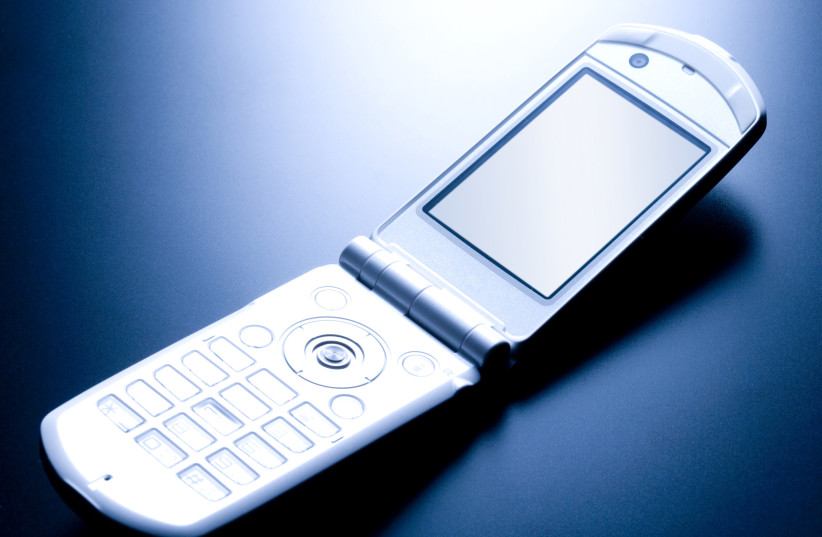One of the most important reforms introduced under the leadership of the communications minister in Israel’s outgoing government pertained to “kosher cell phones.” It may sound boring and esoteric, but the kosher cell phone is one of the draconian tools ultra-Orthodox authorities use to control the haredi public – and to reinforce the walls that divide them from the rest of the world.
The interim order issued by the High Court last week postpones the reform’s implementation by several months, effectively killing it– and destroying the hope of many in the ultra-Orthodox community to escape the clutches of their suffocating communal supervision. This is bad for the ultra-Orthodox and bad for Israeli society, where the chances of haredi integration have decreased even further.
The vast majority of adult Israeli haredim (84%) use kosher phones. In most cases these are “dumb” phones, with small screens and old-style buttons, but what makes them kosher is that their numbers fall within the koma hachsheira or “kosher tier” – a specific range of numbers that identify them as kosher.
The body controlling the “kashrut” of the phones is the Rabbinic Committee for Communications, a monopoly run in the shadows by a few major power brokers. At their will, millions of numbers are blocked to users within the kosher tier, and they do this arbitrarily. It is an affront to the haredi users.
The Rabbinic Committee

The Rabbinic Committee is so indifferent to the needs of the haredim that it even blocks crucial numbers such as those of the Health Ministry, medical clinics, government offices and many others. This is in addition to the routine blocking of businesses and service providers. Why do they do it? Just because they can.
But beyond the practical matter, the kosher tier is a powerful means of communal control over all members of ultra-Orthodox society. Because the kosher numbers belong to a known range identifiable by prefix, haredim who own a phone with a different number are essentially ostracized from the community.
Their children cannot study in ultra-Orthodox educational institutions and their marriageability is adversely affected, for example. Thus, the haredim are, in the most basic sense, captive customers of the Rabbinic Committee and of the kosher tier.
At the same time, the right to transfer phone numbers – a right granted to everyone else under Israeli law – is denied to kosher cell phone users in stringently restrictive contracts between the committee and the cellular companies.
Communications reform
THE REFORM promoted by Communications Minister Yoaz Hendel was supposed to put an end to this tyrannical grip. According to the reform, which was to have come into effect at the beginning of August, those with kosher phones would be able to port their numbers like any other Israeli citizen.
This would have broken the iron-fisted monopoly of the Rabbinic Committee that controls the lives of hundreds of thousands of customers, and the ultra-Orthodox would have been free to choose whether to submit to this supervisory regime, switch to another regime that would surely have arisen, or transfer their numbers outside of the kosher tier altogether. Hundreds of thousands of ultra-Orthodox Israelis would finally have been granted the right to choose their cellular service, like all other Israeli citizens.
The High Court’s decision last week to suspend the reform – presumably representing an opportunity to rule “in favor” of the haredim – will likely bury it for good. In so doing, it snuffs out the hope of many ultra-Orthodox and pushes them back into the arms, the interests and the arbitrary control of the Rabbinic Committee.
Concurrent with the High Court decision, and perhaps encouraged by the decision’s support for rabbinical and power-broker control over the haredim, the next stage of supervision is being offered to members of the ultra-Orthodox community: a SIM card that gives its controllers the ability to surveil the digital activity of its user. This is now just a proposal, a possibility. But if this practice is adopted on a large scale, it will not be possible to be ultra-Orthodox otherwise.
It is true that joining the kosher tier is voluntary, and no one forces the ultra-Orthodox to be ultra-Orthodox. But for many who were born into the community and want to remain there but without the arbitrary Big Brother supervision motivated by economic and political interests, this is essentially a “no choice” regime. It is the role of the state to break up this monopoly, unravel its corrupt cables, and allow the ultra-Orthodox the same right to choose that is granted to every other citizen.
The writer is vice president of the Jewish People Policy Institute, a lecturer in law at the Peres Academic Center, and author of the study, “The Kosher Cellphone Market.”
